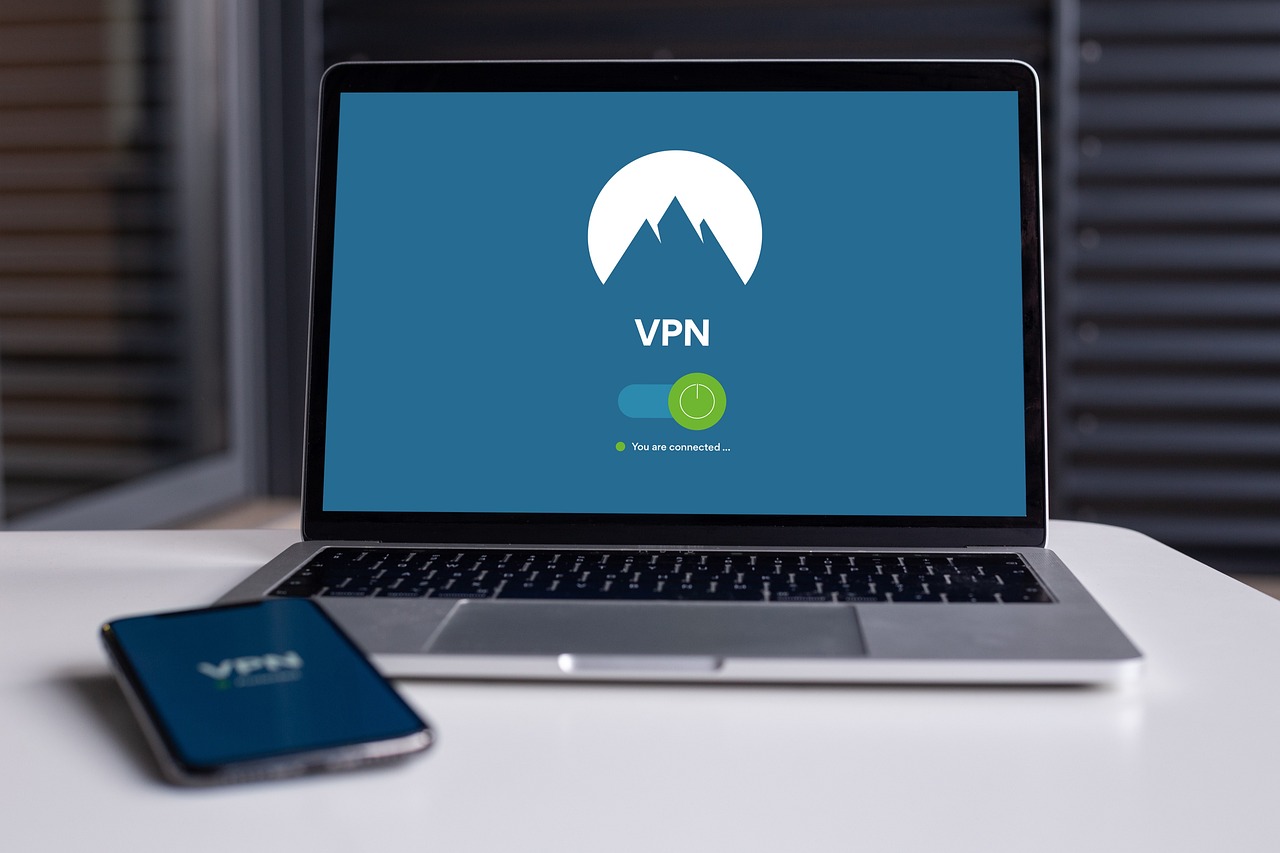Imagine browsing the internet, knowing your data is shielded from prying eyes, your location is masked, and you can access content from anywhere in the world. That’s the power of a Virtual Private Network, or VPN. But what exactly is a VPN, how does it work, and why should you consider using one? This guide will walk you through everything you need to know about VPNs, empowering you to make informed decisions about your online security and privacy.
Understanding VPNs: What They Are and How They Work
What is a VPN?
A VPN, or Virtual Private Network, creates a secure, encrypted connection between your device (computer, smartphone, tablet) and the internet. Think of it as a private tunnel through the public internet. All your internet traffic is routed through this tunnel, masking your IP address and encrypting your data. This makes it significantly harder for anyone to track your online activity or intercept your sensitive information.
- Key Concept: Encryption is crucial. It scrambles your data, making it unreadable to unauthorized parties.
- IP Address Masking: Your real IP address, which reveals your location, is replaced with the VPN server’s IP address.
How Does a VPN Work?
A VPN works by creating an encrypted connection between your device and a VPN server. Here’s a simplified breakdown:
VPN Protocols Explained
VPN protocols are the sets of instructions that govern how data is transmitted securely through the VPN tunnel. Common protocols include:
- OpenVPN: A highly secure and versatile open-source protocol. Considered one of the best options for security and reliability.
- IKEv2/IPSec: Another secure protocol, often used on mobile devices due to its stability and speed.
- WireGuard: A newer protocol known for its speed and simplicity, gaining popularity for its modern approach.
- PPTP: An older protocol that’s generally considered insecure and shouldn’t be used.
Why Use a VPN? The Benefits Explained
Enhancing Your Online Security and Privacy
The primary reason to use a VPN is to enhance your online security and privacy.
- Protecting Your Data: VPNs encrypt your internet traffic, making it unreadable to hackers, snoopers, and even your internet service provider (ISP). This is especially important when using public Wi-Fi networks, which are often unsecured. Imagine you’re using public Wi-Fi at a coffee shop. Without a VPN, anyone on the same network could potentially intercept your data, including passwords and credit card information.
- Preventing Tracking: VPNs mask your IP address, making it harder for websites, advertisers, and other third parties to track your online activity. This helps to protect your privacy and prevent targeted advertising. Many websites use cookies and other tracking technologies to monitor your browsing habits. A VPN can help to circumvent these tracking methods.
- Bypassing Censorship: In countries with strict internet censorship, VPNs can be used to bypass restrictions and access blocked websites and content. For example, users in countries with limited access to social media platforms can use a VPN to access Facebook, Twitter, and other platforms.
Accessing Geo-Restricted Content
Many streaming services, websites, and online games restrict access to content based on your geographic location. A VPN allows you to connect to a server in a different country, effectively changing your virtual location and allowing you to access content that would otherwise be unavailable.
- Example: Streaming Services: Access Netflix libraries in different countries, watch BBC iPlayer from outside the UK, or stream Hulu from anywhere in the world.
- Example: Online Gaming: Connect to gaming servers in different regions to play with friends or access exclusive content.
Preventing ISP Throttling
Some internet service providers (ISPs) may throttle your internet speed for certain types of traffic, such as streaming video or downloading large files. A VPN can help to prevent ISP throttling by encrypting your traffic, making it harder for your ISP to identify and throttle specific types of data.
- How it Works: By encrypting your traffic, your ISP can’t see what you’re doing online. This makes it difficult for them to selectively slow down your connection based on the type of content you’re accessing.
Choosing the Right VPN: Factors to Consider
Security and Privacy Features
When choosing a VPN, prioritize security and privacy features:
- Encryption: Look for VPNs that use strong encryption protocols, such as AES-256.
- No-Logs Policy: Ensure the VPN provider has a strict no-logs policy, meaning they don’t collect or store any data about your online activity. Reputable VPN providers undergo independent audits to verify their no-logs policies.
- Kill Switch: A kill switch automatically disconnects your internet connection if the VPN connection drops, preventing your data from being exposed.
- DNS Leak Protection: Protects your DNS queries from being exposed, ensuring your IP address remains hidden.
Server Locations and Speed
- Server Network: Choose a VPN with a large network of servers in different countries, allowing you to connect to a server that’s close to your desired location. A wider server network offers more flexibility and options for bypassing geo-restrictions.
- Speed: Look for VPNs that offer fast connection speeds. Test different servers to find the fastest connection for your location and activities. Read user reviews and independent speed tests to gauge the performance of different VPN providers.
Cost and Subscription Plans
VPN providers offer a variety of subscription plans, ranging from free to premium.
- Free VPNs: While tempting, free VPNs often come with limitations, such as slower speeds, limited server locations, and data caps. Some may even collect and sell your data. Exercise caution and thoroughly research any free VPN before using it.
- Paid VPNs: Paid VPNs typically offer better security, faster speeds, more server locations, and no data caps. They also tend to have better customer support.
- Consider Long-Term Plans: Subscribing to a longer-term plan (e.g., one or two years) usually offers significant discounts compared to monthly subscriptions.
User Interface and Customer Support
- Ease of Use: Choose a VPN with a user-friendly interface that’s easy to navigate and configure.
- Customer Support: Look for VPN providers that offer reliable customer support, such as live chat, email, or a comprehensive knowledge base. Test the responsiveness and helpfulness of the customer support team before committing to a subscription.
Setting Up and Using a VPN: A Step-by-Step Guide
Choosing a VPN Provider and Subscribing
Research different VPN providers, compare their features and prices, and choose one that meets your needs.
- Read Reviews: Check independent reviews and user feedback to get an unbiased perspective on the VPN’s performance and reliability.
- Consider a Free Trial: Many VPN providers offer free trials or money-back guarantees, allowing you to test the service before committing to a long-term subscription.
Downloading and Installing the VPN Client
Once you’ve subscribed to a VPN service, download and install the VPN client application on your device.
- Official Websites: Download the VPN client from the official website of the provider to avoid downloading malware or compromised software.
- Mobile Apps: Download the mobile app from the official app store (Google Play Store or Apple App Store).
Connecting to a VPN Server
Launch the VPN client and connect to a VPN server.
Verifying Your VPN Connection
After connecting to a VPN server, verify that your connection is working properly.
- IP Address Check: Use a website like `whatismyipaddress.com` to check your IP address. Your IP address should match the IP address of the VPN server you’re connected to.
- DNS Leak Test: Perform a DNS leak test to ensure your DNS queries are not being exposed. Many online tools are available to perform DNS leak tests.
Conclusion
Using a VPN is a powerful way to protect your online security and privacy, access geo-restricted content, and prevent ISP throttling. By understanding how VPNs work, the benefits they offer, and the factors to consider when choosing a VPN provider, you can make informed decisions about your online security and take control of your digital life. Remember to prioritize security and privacy features, choose a VPN with a reliable server network and fast speeds, and verify your connection to ensure it’s working properly. Investing in a reputable VPN is an investment in your online safety and freedom.
Read our previous article: AIs Moral Compass: Navigating Bias And Accountability
For more details, visit Wikipedia.




